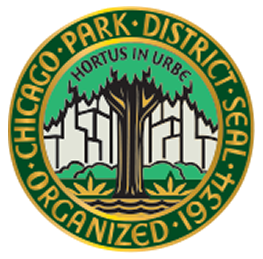Map & Listings
Loyola Beach
1230 W. Greenleaf Ave. (Greenleaf Ave. @ Lake Michigan)
Chicago, IL 60626
United States
Margaret T. Burroughs Beach
3100 S. Jean-Baptiste Pointe DuSable Lake Shore Drive
Chicago, IL 60616
United States
Marion Mahony Griffin Beach
Montrose Beach
4400 N. Jean-Baptiste Pointe DuSable Lake Shore Drive
Chicago, IL 60613
United States
North Avenue Beach
1601 N. Jean-Baptiste Pointe DuSable Lake Shore Drive
Chicago, IL 60611
United States
Oak Street Beach
1000 N Jean-Baptiste Pointe DuSable Lake Shore Drive
Chicago, IL 60611
United States
Ohio Street Beach
600 North Jean-Baptiste Pointe DuSable Lake Shore Drive
Chicago, IL 60611
United States
Osterman Beach
5800 North Jean-Baptiste Pointe DuSable Lake Shore Drive
Chicago, IL 60640
United States
A beach is considered accessible if it has an accessible path of travel (beach walk) to the shoreline. The International Symbol of Access (wheelchair icon) indicates accessible beaches in the above list.
Note: The following locations have a beach wheelchair available for free use with a valid ID. Visit the lifeguard office at the beach houses to check one out.
- Osterman Beach
- Foster Beach
- Montrose Beach
- North Avenue Beach
- 31st St. Beach
- 63rd St. Beach
- South Shore Beach
- Rainbow Beach
Water Safety
To ensure a safe water experience for everyone, please follow these measures when visiting a beach:
- Respect the Flag, stay out of the water if the flag is red.
- Don’t swim in non-swimming areas. Look for stencils that indicate “no swimming” and “no diving.”
- Pay attention to the waves. Avoid longshore and structural currents.
- Keep your children safe. Use a buddy system and stay near your kids when they’re in the water.
- If you see someone in trouble, call for help (lifeguards or 911).
- Know where you are on the lakefront.
- Get a last-seen point so you can direct first-responders.
Beach Rules
- Swim only when lifeguards are on duty.
- Swim only in designated swim areas.
- Do not swim if the flag is red.
- Follow lifeguards’ instructions.
- Only Coast Guard approved personal flotation devices (PFDs) are permitted. Children wearing PFDs should have an adult with them in the water.
- No smoking.
- No alcohol.
- No dogs on the beach.
- Do not feed birds or wildlife.
- Dispose of trash and recycling in appropriate containers.
- Grill in designated areas only and dispose of coals in red barrels.
- Keep accessible beach walks clear. No bicycling, skateboarding or rollerblading is permitted in these areas.
Flag Warning System
Swim status is communicated through a flag system at each beach and here on this website. 


Swim bans and advisories may be implemented based on weather conditions such as lightning or high winds, surf conditions such as high waves, or water quality conditions. Please be aware of the current swim status when you go to the beach, and follow all instructions from lifeguards. Swim status may change throughout the day as water and weather condItions change.
Water Quality Testing FAQ's
How often does CPD sample the water?
The Chicago Park District samples the beaches seven days a week starting the Friday of Memorial Day weekend until Labor Day. Chicago Park District Lab Sample Collectors sample between sunrise and 8:30 am.
What method does CPD use?
The Chicago Park District and the University of Illinois at Chicago School of Public Health have partnered to expand the water quality testing program to utilize a new Rapid Testing method developed by the US Environmental Protection Agency (USEPA). The Rapid Testing method measures levels of bacterial DNA in beach water. The traditional Culture Based method provides results after 18-24 hours, but the Rapid Test provides results within 3-4 hours. The Chicago Park District uses results of the Rapid Test to notify the public when the risk is elevated for developing water-borne illness.
What does CPD sample for?
The Chicago Park District tests the water for Enterococci bacteria. Enterococci is not harmful itself and is naturally occurring in the environment. However, this bacteria is an indicator of the presence of other pathogens that could make you sick. US Environmental Protection Agency (USEPA) beach policy recommends notifying the public when Enterococci bacteria levels are above the federal water quality Beach Action Value (BAV), which is 1000 CCE. This standard is used at beaches throughout the Great Lakes region.
Why does CPD issue water quality advisories?
If a water sample exceeds 1000 CCE of Enterococci bacteria, the Chicago Park District will issue a swim advisory which will be indicated with a yellow flag.
How does CPD inform the public?
Beach water quality information is posted on www.chicagoparkdistrict.com/beaches by 1:30 pm each day throughout the swimming season. Current and historical records can be downloaded by searching “Beach Lab Data’ on https://data.cityofchicago.org.
Help Keep Beaches Clean
All visitors to our beaches want to enjoy an experience free from garbage, waste and other environmental nuisances. Keeping our beaches clean also helps to prevent water quality swim advisories.
Here are the things you can do to help keep Chicago's beaches clean:
- Place all garbage and recycling in their appropriate containers.
Garbage — especially leftover food — attracts birds and other wildlife to the beaches, resulting in water contamination. - Don't feed birds or wildlife.
- Put small children in waterproof diapers and change diapers frequently. Dispose of diapers in trash containers.
- Grill only in designated areas, and place your charcoal waste in the marked red metal containers.
- Keep dogs in designated areas. Pick up after your pets and place pet waste in trash cans.
- Please do not swim if you’re not feeling well.
- Be sure to also check out our volunteer page for ways you can join the beaches volunteer team and our beach rules for what’s not allowed at the beach.


























